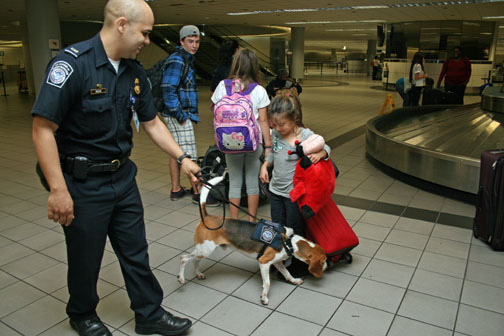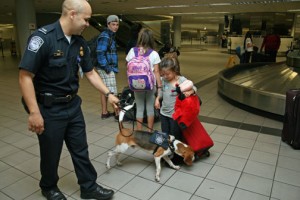USVI launches travelers ‘Don’t Pack a Pest’ campaign

U.S. Customs and Border Protection, U.S. Department of Agriculture, and the Florida Department of Agriculture and Consumer Services, joined in announcing Tuesday the implementation of the international Travelers Don’t Pack a Pest outreach program, a multi-agency initiative. The announcement was made at the Cyril E. King Airport in the U.S. Virgin Islands.
The USVI join Puerto Rico and Jamaica as locations in the Caribbean to partner in the Travelers Don’t Pack a Pest program, designed to raise public awareness about the risks associated with passengers potentially introducing pests and diseases into, the United States and the Caribbean Region, by carrying agricultural and food items in their luggage when they travel.
“The Travelers Don’t Pack a Pest program was conceived to extend the protection of Florida’s food supply and environment to our Caribbean neighbors and beyond,” said Florida Department of Agriculture and Consumer Services Division of Plant Industry Division Director, Richard Gaskalla.
“We are bringing information to all our constituents and partners because we want them to work closely with us,” stated Leyinska Wiscovitch, from the USDA Animal and Plant Health Inspection Service.
Thousands of pounds of agricultural produce are confiscated at ports of entry from passengers on a daily basis. Some travelers are not aware these items are prohibited, while some knowingly attempt to bring in prohibited items.
“Agriculture inspections are a crucial part of the inspection process for items entering into the country,” said Marcelino Borges, director of Field Operations for Puerto Rico and the USVI. “A single dangerous pest could cause millions of dollars of damage to our nation’s crops.”
These undeclared items pose a serious threat to food and natural resources as exotic invasive pests can enter through this pathway and become established, causing millions of dollars to manage or eradicate. In addition, these unwanted invaders can result in loss of export markets due to quarantines and can negatively impact natural areas, agency officials said.















